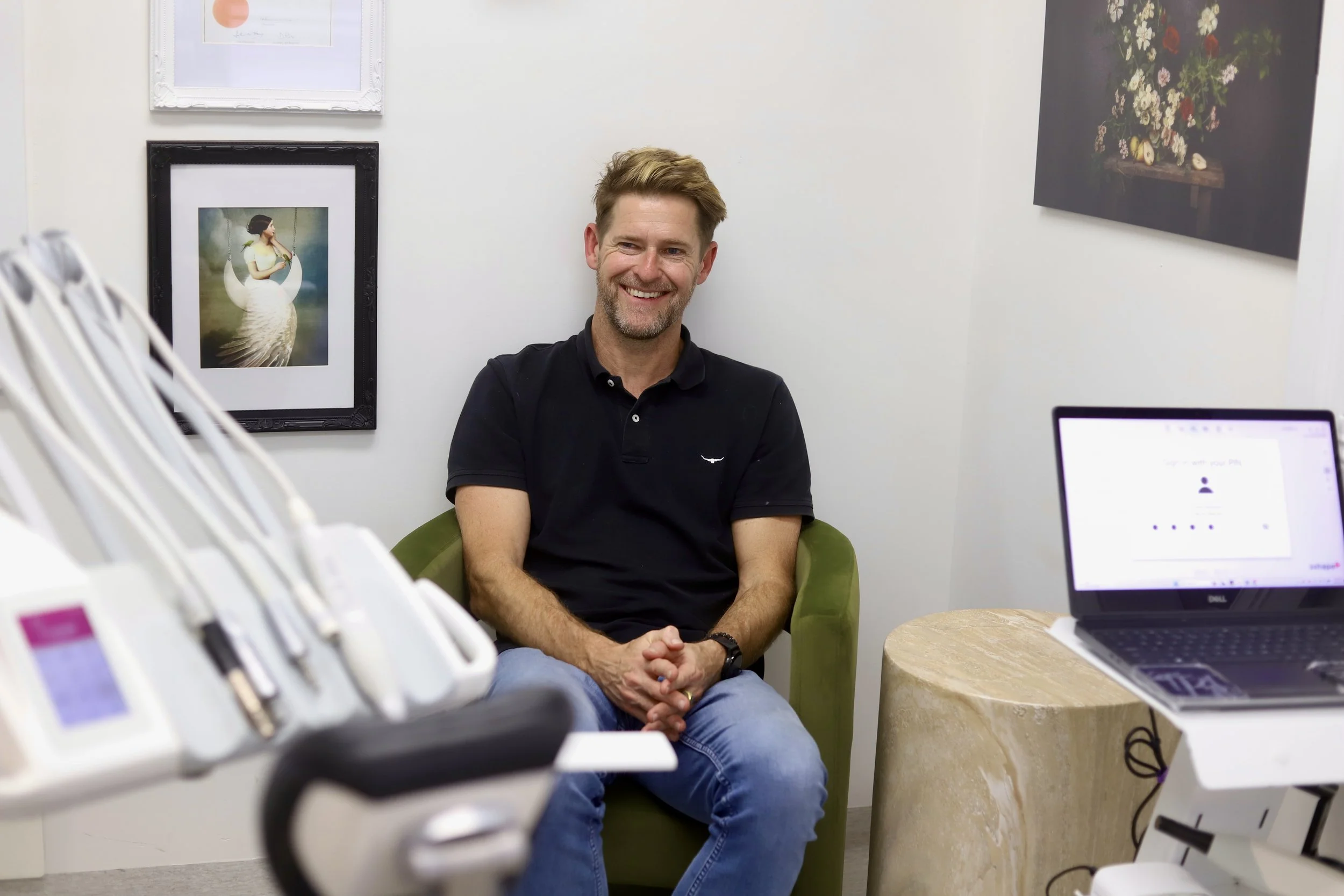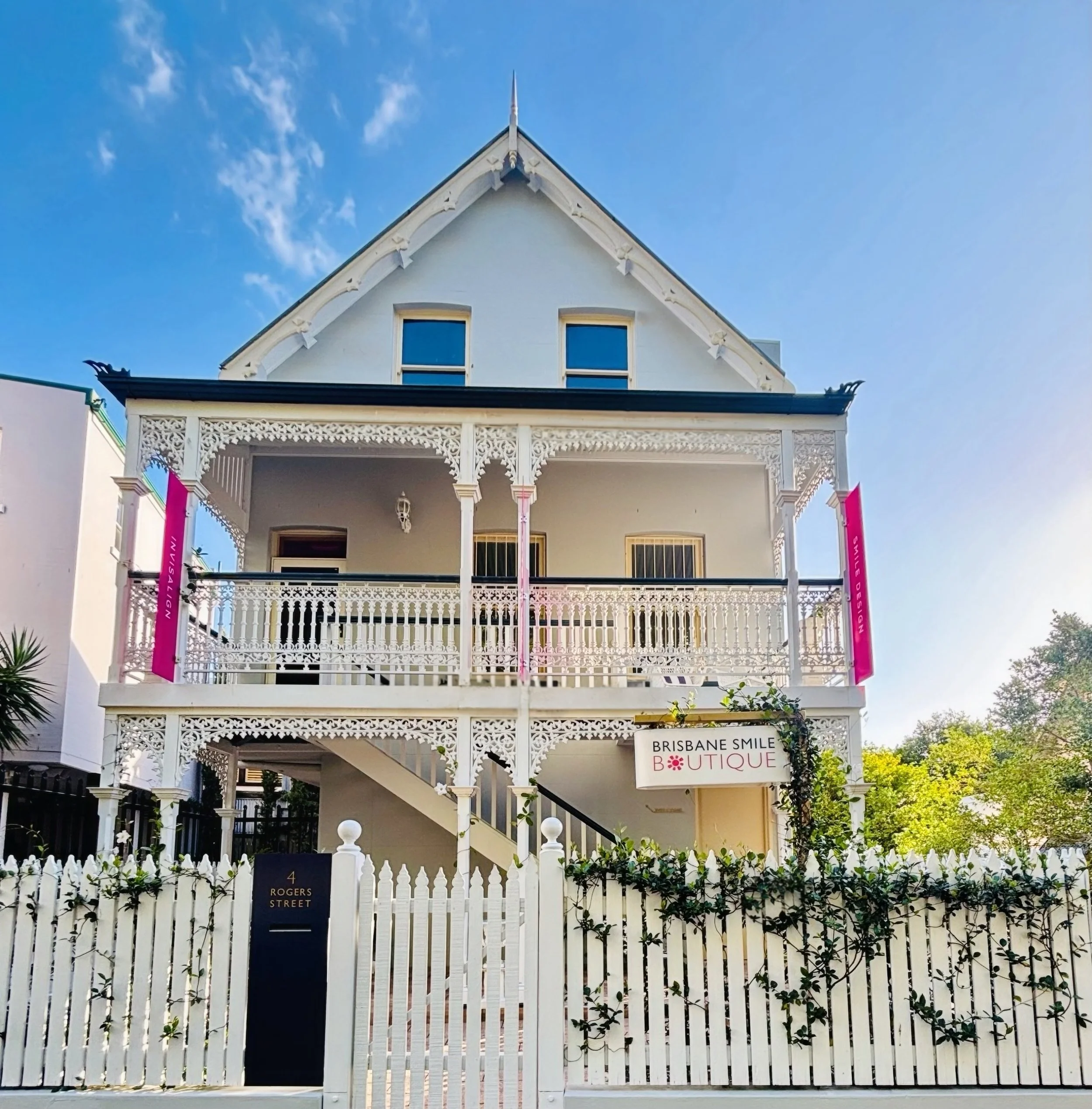Brisbane Smile Boutique.
Teeth Grinding Solutions.
At Brisbane Smile Boutique, we offer treatments for bruxism, a condition characterised by the involuntary clenching, grinding, and gnashing of teeth.
Bruxism is a common issue, with about 50% of people grinding their teeth occasionally, and approximately 5% doing so more forcefully and frequently, often during sleep.
Bruxism Management.
Bruxism is the involuntary grinding or clenching of teeth, often during sleep, and is commonly linked to stress, anxiety, poor sleep, or evening overstimulation. Treatment options include custom-made night guards (occlusal splints), repair of tooth damage, jaw muscle therapies, and stress management. Medical treatment targeting the masseter muscle can help relax it, reducing grinding, TMJ strain, and related headaches, while preserving normal jaw function. Effects typically last 3–4 months.
-
Bruxism involves grinding or clenching of the teeth at times other than eating.
- The forces generated by bruxism can be up to six times greater than those during normal chewing.
- This excessive force can lead to various dental issues, including damaged teeth, fractures, toothache, and overworked jaw muscles.
-
- Continuous grinding can result in an increase in the size of the jaw muscles.
- It can also cause pain in the jaw joint, leading to temporomandibular joint disorders (TMD).
- Many individuals are unaware that they grind their teeth, especially since it often occurs during sleep.
-
Bruxism is managed with personalised treatment plans based on each patient’s symptoms and severity. Key options include:
Occlusal splint therapy (custom night guards) to protect teeth from grinding during sleep.
Lifestyle and stress management to help reduce contributing factors.
Restorative dental care to repair damage and ensure proper tooth function.
Invisalign or clear aligners to correct bite misalignment contributing to bruxism.
Full jaw analysis and radiographs to assess the health of teeth, gums, and jaw joints, and rule out underlying issues.
Muscle relaxation therapies to relieve acute jaw pain and tension.
The focus is on both relieving symptoms and addressing the underlying causes. Ongoing monitoring, including bite force and alignment analysis, ensures treatment stays effective over time.
Occlusal Splint Therapy.
An occlusal splint is a custom 3D-printed, hard yet flexible appliance worn over the teeth—typically at night—to protect them from the damaging forces of grinding and clenching. It cushions bite forces, protects the jaw joint (TMJ), and helps redirect jaw movements. Splints also serve a diagnostic role, using advanced scanning technology to analyse bite patterns and jaw function.
What is Jaw Dysfunction
Temporomandibular Disorder (TMD) affects the jaw joints and surrounding muscles, often causing pain, headaches, jaw clicking, limited movement, and teeth grinding. At Brisbane Smile Boutique, we offer personalised TMD management plans including bite analysis, occlusal splints, muscle therapy, and restorative care. Our goal is to relieve discomfort, protect the jaw and teeth, and improve long-term function and quality of life.
Teeth Wear
Teeth wear is the gradual loss of tooth structure due to grinding (bruxism), erosion from acids, or mechanical abrasion. It can lead to flattened, sensitive, or chipped teeth, and changes in your bite or smile.
At Brisbane Smile Boutique, we manage teeth wear with personalised treatments including protective splints, bite correction, and restorative dentistry to rebuild and protect your smile.
Temporomandibular Joint (TMJ) disorders, or TMD, can cause jaw pain, headaches, earaches, clicking or popping sounds, limited mouth opening, and tooth damage from clenching or grinding.
At Brisbane Smile Boutique, we offer personalised treatment plans that may include therapies targeting the masseter muscle to reduce jaw tension, relieve pain, and minimise tooth wear—while preserving normal jaw function. These treatments can be a valuable alternative or complement to night guards, helping patients manage symptoms and improve overall jaw health.
Brisbane Smile Boutique has been redefining Aesthetic Dentistry since 2003.
With a Lifetime of trusted Expertise, our Aesthetic Dentists create Exceptional Smiles with Precision, Artistry, and Care.
Connect directly with the Brisbane Smile Boutique Team.
Our Dedicated Dental Team at Brisbane Smile Boutique are here to Understand your Vision and would love to assist.





